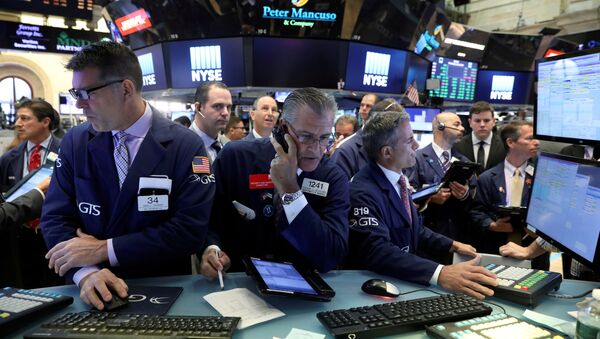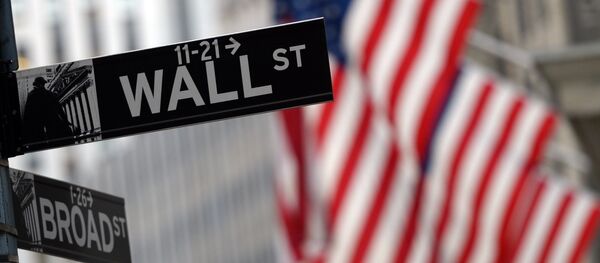Kristian Rouz – As Hurricane Harvey ravages the US Gulf Coast, another catastrophe might be brewing on Wall Street, where the largest financial enterprises are bracing for an end of the current market expansion cycle. Whilst a downturn in bank trading and lending operations might not necessarily bear hazards for the non-financial sector, the bond market dynamics and the looming debt ceiling risks might be a tipping point for the entire economy.
“Equities have become less correlated with FX, FX has become less correlated with rates, and everything has become less sensitive to oil,” Andrew Sheets of Morgan Stanley wrote in a note.
Both the US stock and bond markets might be on the verge of massive declines as the current situation is increasingly reminiscent of that in 2007. Ten years ago, just before the Great Recession shattered the global economy, assets were priced based on industry performance and risk factors, rather than solid macro data, such as manufacturing and construction figures.
The discrepancy between the robust stock market and the feeble Main Street economy is hazardous, as it could produce a panic sell-off in financial assets, including high-yielding bonds (“junk bonds”) and stocks, which could further hamper domestic bank lending and private sector financing, resulting in a broader economic downturn.
Even though the US economy is nearing the end of a 10-year business cycle within the coming eight quarters – according to the National Bureau of Economic Research’s (NBER) model, a recession can be avoided if economic growth gains momentum, whilst higher political risks slash some value off the equity market.
“The cycle of real corporate profits has turned enough to be a potential source of concern in the next four quarters. That, along with the most expensive equity valuations among major markets, should worry investors in US stocks,” Gaurav Saroliya of Oxford Economics said.
The US economy, according to the NBER classification, is in its late-cycle expansion, where the “full employment” situation in the labor market fails to spur economic growth or contribute to any reasonable improvements in quality of life. The concluding business cycle has thus been truly a “lost decade,” as the US economy did not see any fundamental reform or a substantial breakthrough in regard to its productive forces.
The largest banks’ pretax profits margins are shrinking, which is another reason for concern. In such a situation, banks are increasingly reluctant to lend money, and a subsequent lack of liquidity could hamper economic growth.
Whilst the US stock market shows signs of being significantly overpriced, the bond market points to a looming recession – longer-term bonds are in higher-demand than more profitable short-term debt equities. GDP expansion, at just above 2 percent, is deemed unsustainable, meaning US stocks are currently priced way above their reasonable value the fundamentals might suggest.
“Bubbles are common in these aging equity bull markets,” Citigroup analysts said.
Meanwhile, the Federal Reserve maintains its commitment to tightening monetary conditions, and the White House’s fiscal stimulus package is facing further delays. The Trump administration’s economic reform might turn out to be more painful than initially expected, and the US economy might post at least two consecutive quarters of contraction in the time being.






